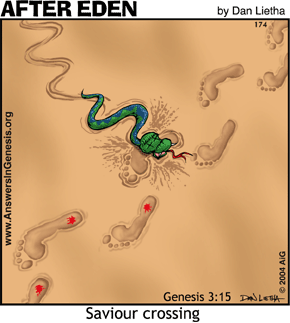 Dr. J. I. Packer:
Dr. J. I. Packer:
“Most people in churches nowadays have never read through the Bible even once; the older Christian habit of reading it from start to finish as a devotional discipline has virtually vanished. So in describing the Bible we start from scratch, assuming no prior knowledge.
The Bible consists of 66 separate pieces of writing, composed over something like a millennium and a half. The last 27 of them were written in a single generation: they comprise four narratives about Jesus called Gospels, an account of Christianity’s earliest days called the Acts of the Apostles, 21 pastoral letters from teachers with authority, and a final admonition to churches from the Lord Jesus himself, given partly by dictation and partly by vision. All these books speak of human life being supernaturally renovated through, in, with, under, from and for the once crucified, now glorified Son of God, who fills each writer’s horizon, receives his worship, and determines his mind-set at every point.
Through the books runs the claim that this Jesus fulfills promises, patterns and premonitions of blessings to come that are embodied in the 29 pre-Christian books. These are of three main types: history books, telling how God called and sought to educate the Jewish people, Abraham’s family, to worship, serve and enjoy him, and to be ready to welcome Jesus Christ when he appeared; prophetic books, recording oracular sermons from God conveyed by human messengers expressing threats, hopes and calls to faithfulness; and wisdom books which in response to God’s revelation show how to praise, pray, live, love, and cope with whatever may happen.
Christians name these two collections the Old and New Testament respectively. Testament means covenant commitment, and the Christian idea, learned from Paul, from the writer to the Hebrews, and from Jesus himself, is that God’s covenant commitment to his own people has had two editions. The first edition extended from Abraham to Christ; it was marked throughout by temporary features and many limitations, like a non-permanent shanty built of wood on massive concrete foundations. The second edition extends from Christ’s first coming to his return, and is the grand full-scale edifice for which the foundations were originally laid.
The writer to the Hebrews, following Jeremiah’s prophecy, calls this second superstructure the new covenant, and explains that through Christ, who is truly its heart, it provides a better priesthood, sacrifice, place of worship, range of promises and hope for the future than were known under its predecessor. Christians see Christ as the true center of reference in both Testaments, the Old always looking and pointing forward to him and the New proclaiming his past coming, his present life and ministry in and from heaven, and his future destiny at his return, and they hold that this is the key to true biblical interpretation.
Christians have maintained this since Christianity began.”
– Taking God Seriously: Vital Things We Need to Know (Crossway, 2013), 21-22
 A little one shall become a thousand, and a small one a strong nation: I the Lord will hasten it in his time. (Isaiah 60:22)
A little one shall become a thousand, and a small one a strong nation: I the Lord will hasten it in his time. (Isaiah 60:22)




 Just as a jeweler in a store will always use a black velvet background to display the splendor of an exquisite diamond, so the intricate, dazzling beauty of the gospel is only fully seen when we understand what the Bible says about man’s radical condition outside of Christ. Its a bleak and dark picture to be sure. Yet only when we understand the immensity of the problem can we find the right solution – and see the futility of all other man made remedies. We need far more than a moral pep talk; more than some medical first aid for our gaping wounds; and even more than even an oxygen mask to help us breathe more easily. What we need is a miracle! What we need is a resurrection!
Just as a jeweler in a store will always use a black velvet background to display the splendor of an exquisite diamond, so the intricate, dazzling beauty of the gospel is only fully seen when we understand what the Bible says about man’s radical condition outside of Christ. Its a bleak and dark picture to be sure. Yet only when we understand the immensity of the problem can we find the right solution – and see the futility of all other man made remedies. We need far more than a moral pep talk; more than some medical first aid for our gaping wounds; and even more than even an oxygen mask to help us breathe more easily. What we need is a miracle! What we need is a resurrection! Quote from Tim Keller’s Chapter in “The Scriptures Testify About Me”:
Quote from Tim Keller’s Chapter in “The Scriptures Testify About Me”: Dr. J. I. Packer:
Dr. J. I. Packer: Stand over this volume [the Bible], we might reject them; but O let me think the solemn thought, that this book is God’s handwriting– that these words are God’s! Let me look at its date; it is dated from the hills of heaven. Let me look at its letters; they flash glory on my eye. Let me read the chapters; they are big with meaning and mysteries unknown. Let me turn over the prophecies; they are pregnant with unthought- of wonders. Oh, book of books! And wast thou written by my God? Then will I bow before thee. Thou book of vast authority! thou art a proclamation from the Emperor of Heaven; far be it from me to exercise my reason in contradicting thee. Reason, thy place is to stand and find out what this volume means, not to tell what this book ought to say.
Stand over this volume [the Bible], we might reject them; but O let me think the solemn thought, that this book is God’s handwriting– that these words are God’s! Let me look at its date; it is dated from the hills of heaven. Let me look at its letters; they flash glory on my eye. Let me read the chapters; they are big with meaning and mysteries unknown. Let me turn over the prophecies; they are pregnant with unthought- of wonders. Oh, book of books! And wast thou written by my God? Then will I bow before thee. Thou book of vast authority! thou art a proclamation from the Emperor of Heaven; far be it from me to exercise my reason in contradicting thee. Reason, thy place is to stand and find out what this volume means, not to tell what this book ought to say. Have you ever been deeply hurt, totally ignored by somone you thought was a friend; or worse, even betrayed by them? Just remember, not only does God come very close at such times, but He is also preparing you to help others.
Have you ever been deeply hurt, totally ignored by somone you thought was a friend; or worse, even betrayed by them? Just remember, not only does God come very close at such times, but He is also preparing you to help others.